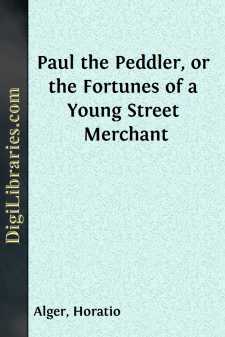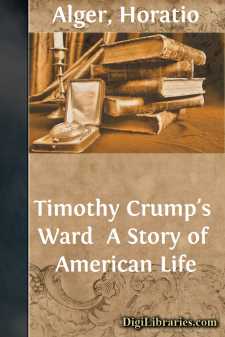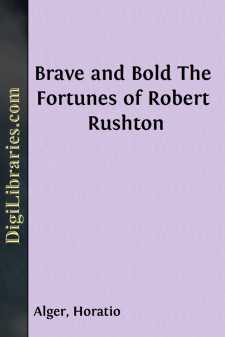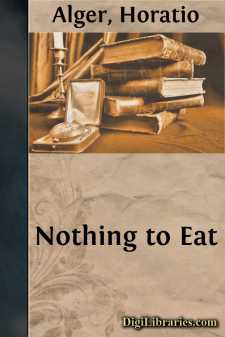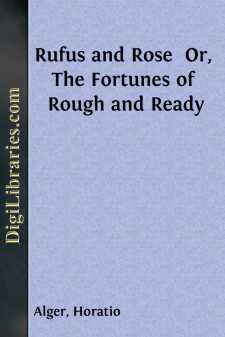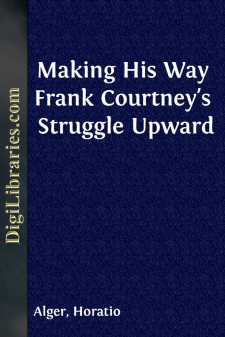Categories
- Antiques & Collectibles 13
- Architecture 36
- Art 48
- Bibles 22
- Biography & Autobiography 813
- Body, Mind & Spirit 142
- Business & Economics 28
- Children's Books 17
- Children's Fiction 14
- Computers 4
- Cooking 94
- Crafts & Hobbies 4
- Drama 346
- Education 46
- Family & Relationships 57
- Fiction 11829
- Games 19
- Gardening 17
- Health & Fitness 34
- History 1377
- House & Home 1
- Humor 147
- Juvenile Fiction 1873
- Juvenile Nonfiction 202
- Language Arts & Disciplines 88
- Law 16
- Literary Collections 686
- Literary Criticism 179
- Mathematics 13
- Medical 41
- Music 40
- Nature 179
- Non-Classifiable 1768
- Performing Arts 7
- Periodicals 1453
- Philosophy 64
- Photography 2
- Poetry 896
- Political Science 203
- Psychology 42
- Reference 154
- Religion 513
- Science 126
- Self-Help 84
- Social Science 81
- Sports & Recreation 34
- Study Aids 3
- Technology & Engineering 59
- Transportation 23
- Travel 463
- True Crime 29
Paul the Peddler, or the Fortunes of a Young Street Merchant
by: Horatio Alger
Categories:
Description:
Excerpt
CHAPTER I
PAUL THE PEDDLER
"Here's your prize packages! Only five cents! Money prize in every package! Walk up, gentlemen, and try your luck!"
The speaker, a boy of fourteen, stood in front of the shabby brick building, on Nassau street, which has served for many years as the New York post office. In front of him, as he stood with his back to the building, was a small basket, filled with ordinary letter envelopes, each labeled "Prize Package."
His attractive announcement, which, at that time, had also the merit of novelty—for Paul had himself hit upon the idea, and manufactured the packages, as we shall hereafter explain—drew around him a miscellaneous crowd, composed chiefly of boys.
"What's in the packages, Johnny?" asked a bootblack, with his box strapped to his back.
"Candy," answered Paul. "Buy one. Only five cents."
"There ain't much candy," answered the bootblack, with a disparaging glance.
"What if there isn't? There's a prize."
"How big a prize?"
"There's a ten-cent stamp in some of 'em. All have got something in 'em."
Influenced by this representation, the bootblack drew out a five-cent piece, and said:
"Pitch one over then. I guess I can stand it." An envelope was at once handed him.
"Open it, Johnny," said a newsboy at his side. Twenty curious eyes were fixed upon him as he opened the package. He drew out rather a scanty supply of candy, and then turning to Paul, with a look of indignation, said:
"Where's the prize? I don't see no prize. Give me back my five cents."
"Give it to me. I'll show you," said the young merchant.
He thrust in his finger, and drew out a square bit of paper, on which was written—One Cent.
"There's your prize," he added, drawing a penny from his pocket.
"It ain't much of a prize," said the buyer. "Where's your ten cents?"
"I didn't say I put ten cents into every package," answered Paul.
"I'd burst up pretty quick if I did that. Who'll have another package? Only five cents!"
Curiosity and taste for speculation are as prevalent among children as with men, so this appeal produced its effect.
"Give me a package," said Teddy O'Brien, a newsboy, stretching out a dirty hand, containing the stipulated sum. He also was watched curiously as he opened the package. He drew out a paper bearing the words—Two Cents.
"Bully for you, Teddy! You've had better luck than I," said the bootblack.
The check was duly honored, and Teddy seemed satisfied, though the amount of candy he received probably could not have cost over half-a-cent. Still, he had drawn twice as large a prize as the first buyer, and that was satisfactory.
"Who'll take the next?" asked Paul, in a businesslike manner. "Maybe there's ten cents in this package. That's where you double your money. Walk up, gentlemen. Only five cents!"
Three more responded to this invitation, one drawing a prize of two cents, the other two of one cent each. Just then, as it seemed doubtful whether any more would be purchased by those present, a young man, employed in a Wall street house, came out of the post office....


